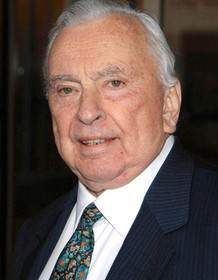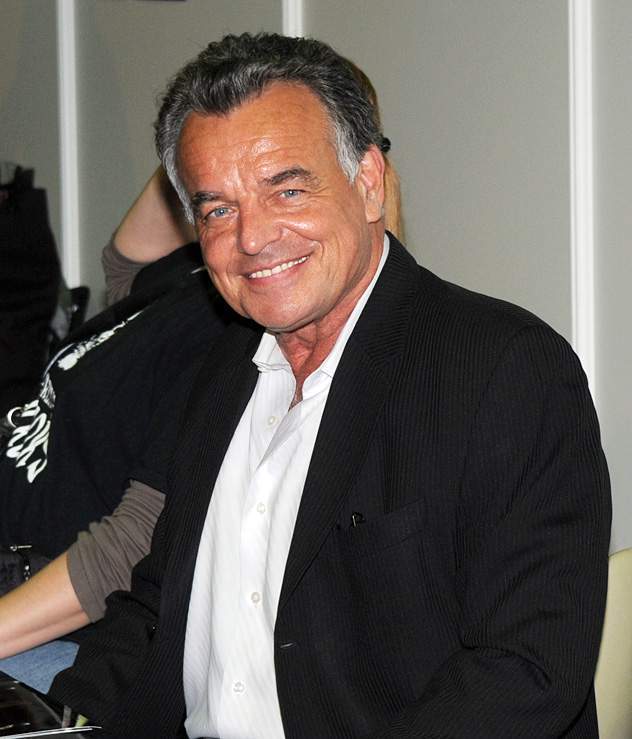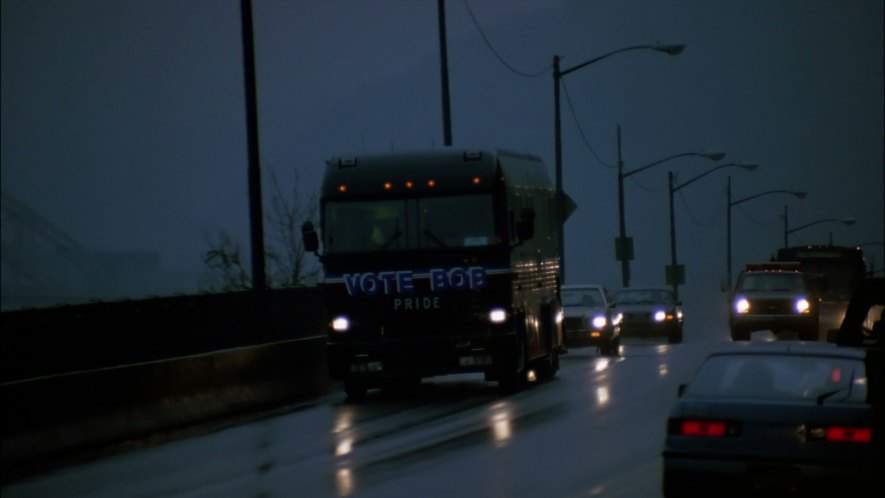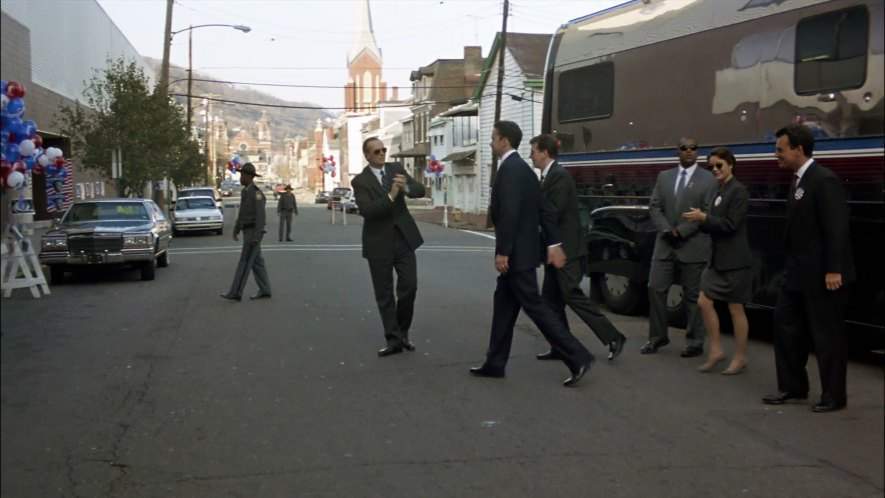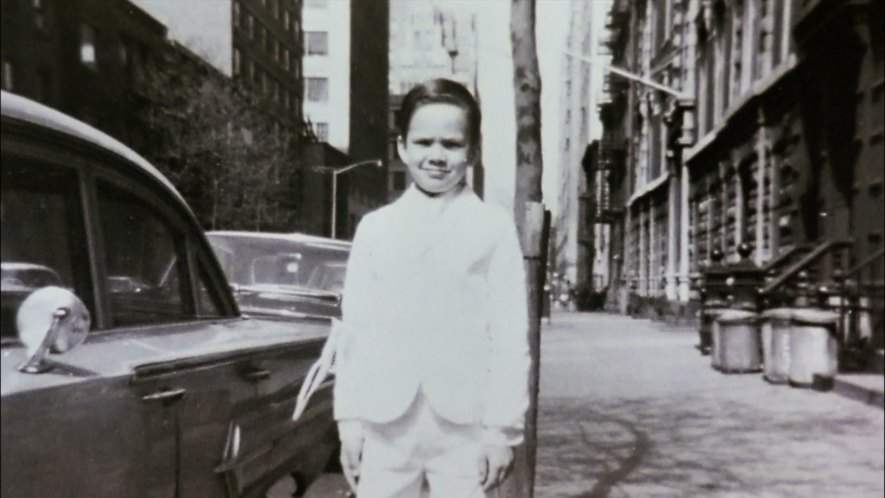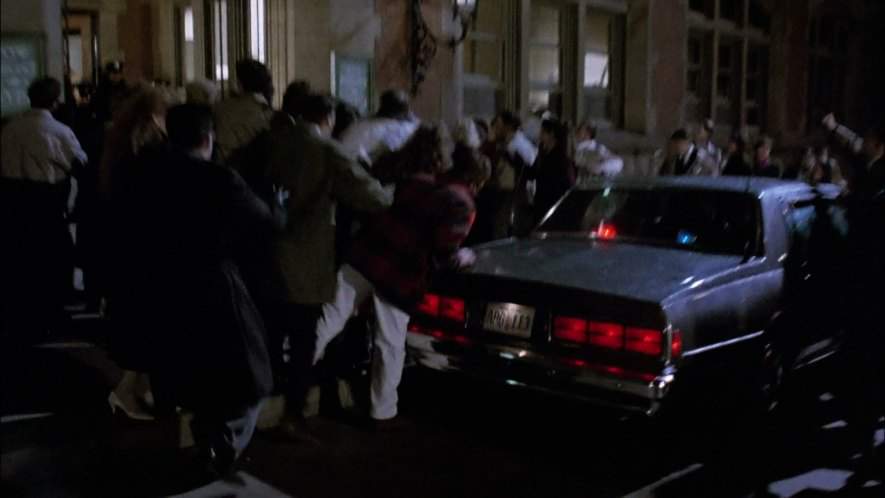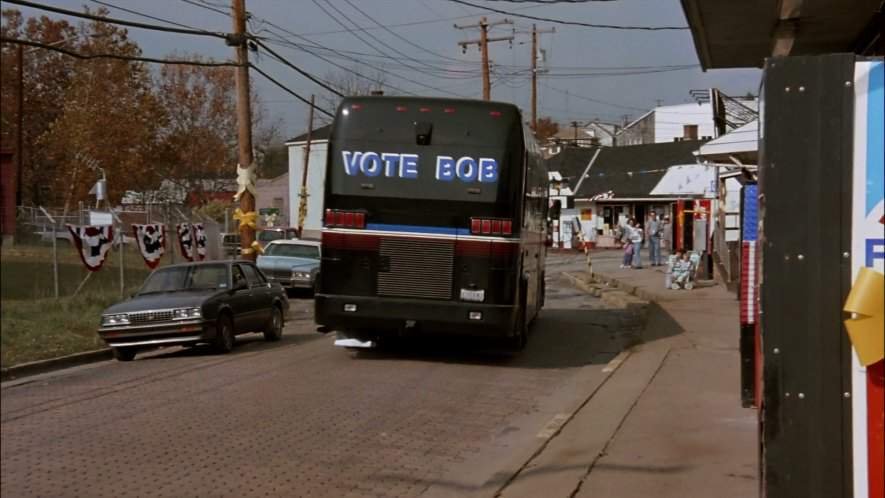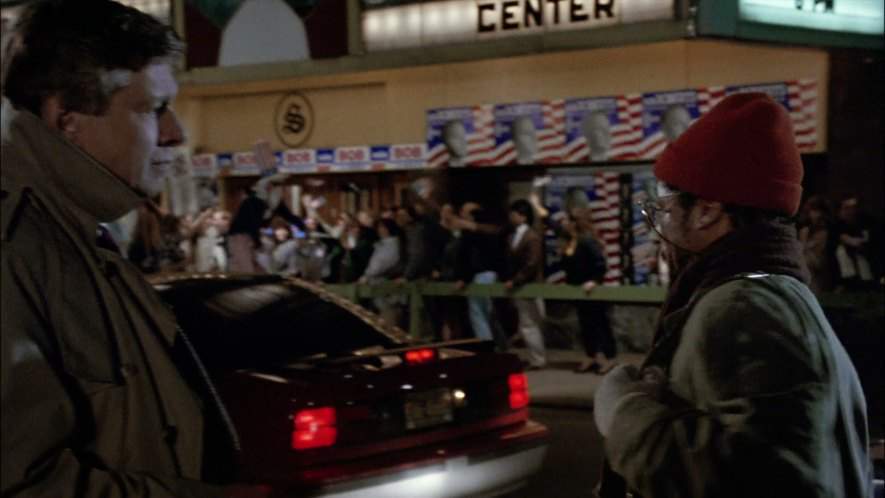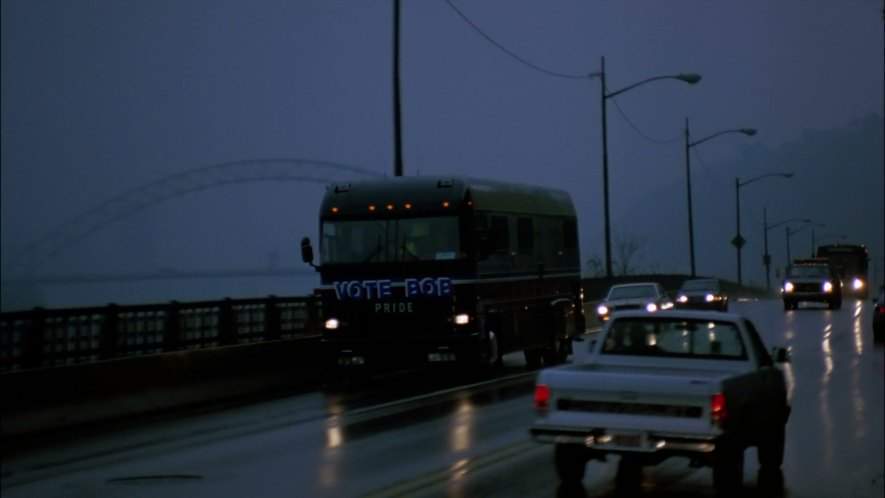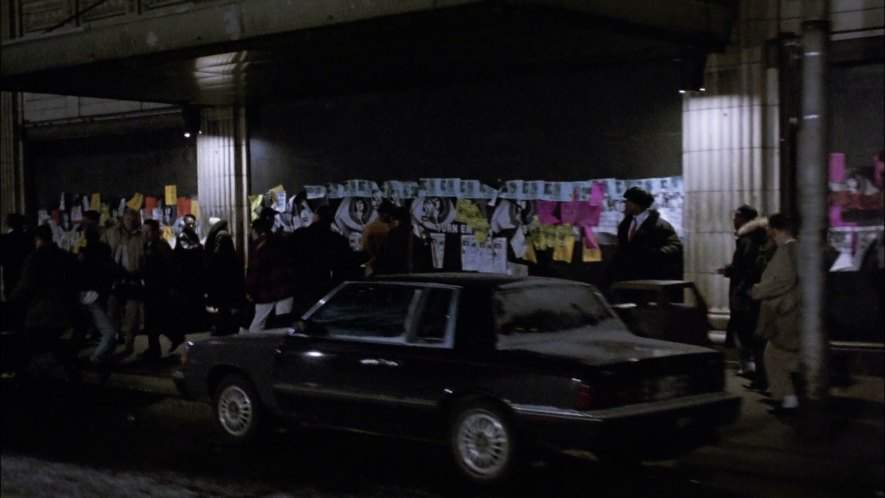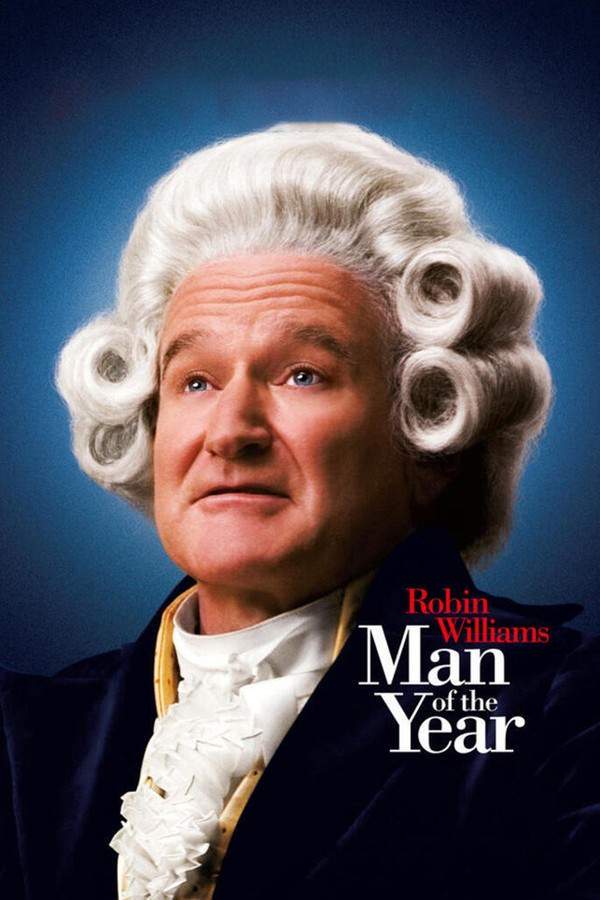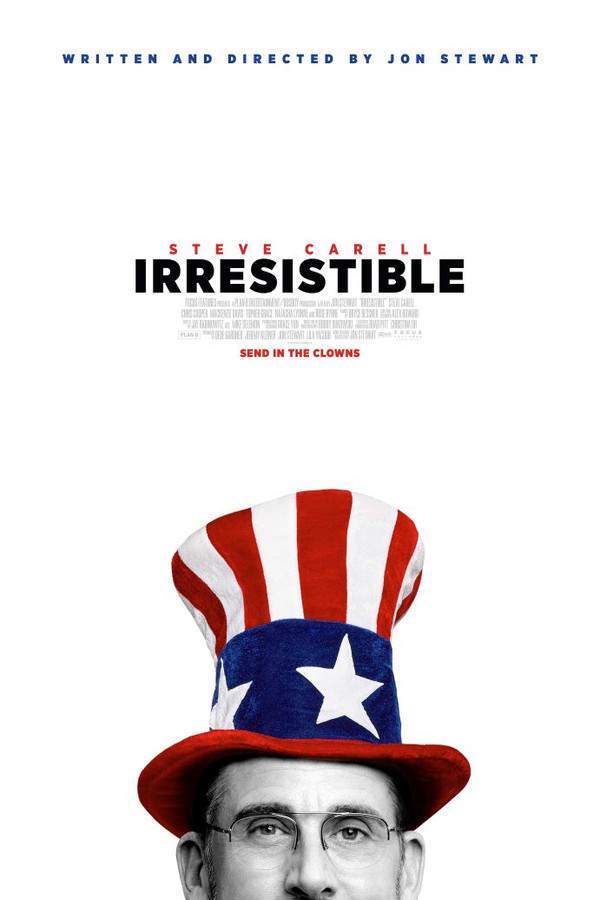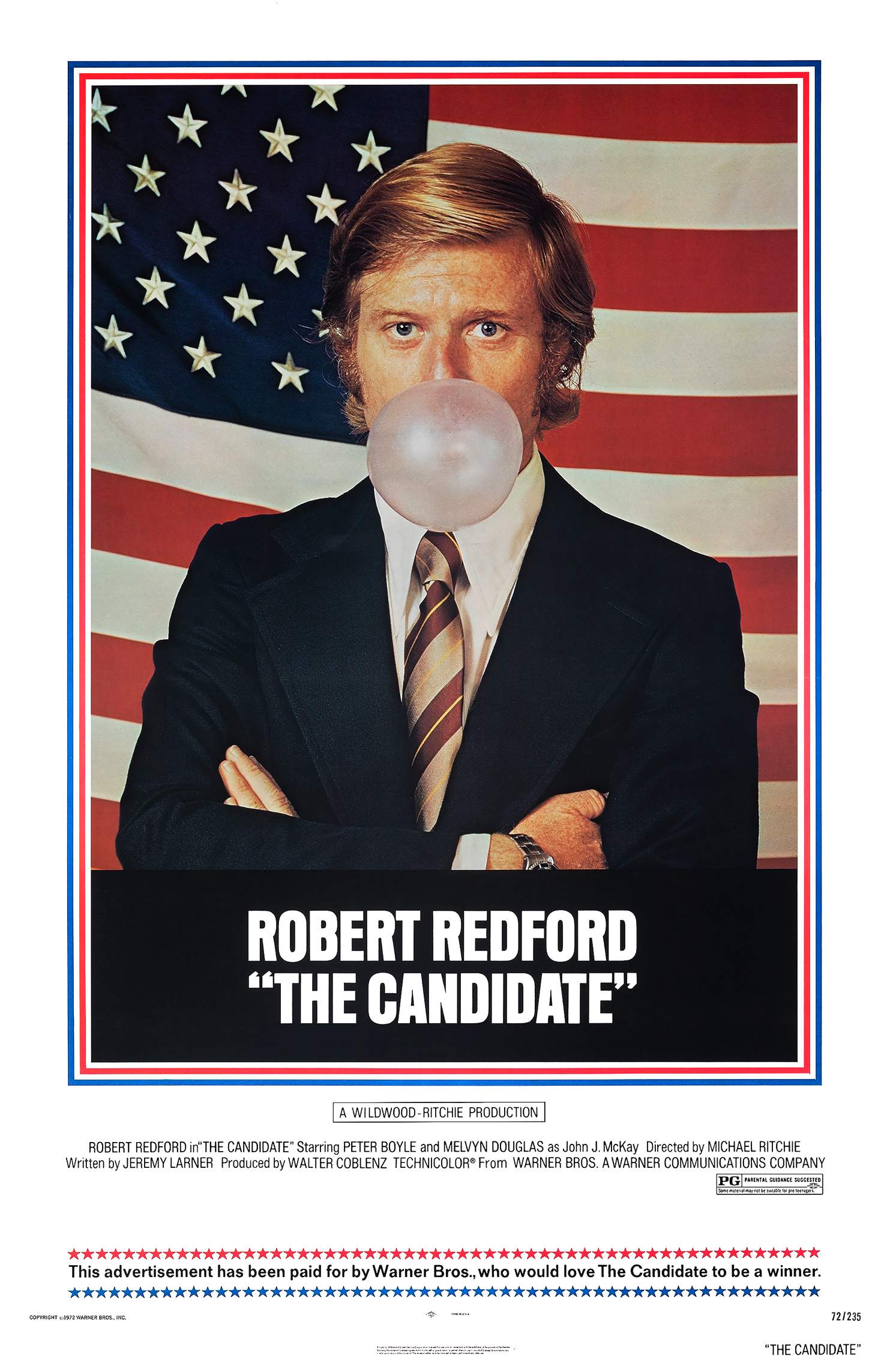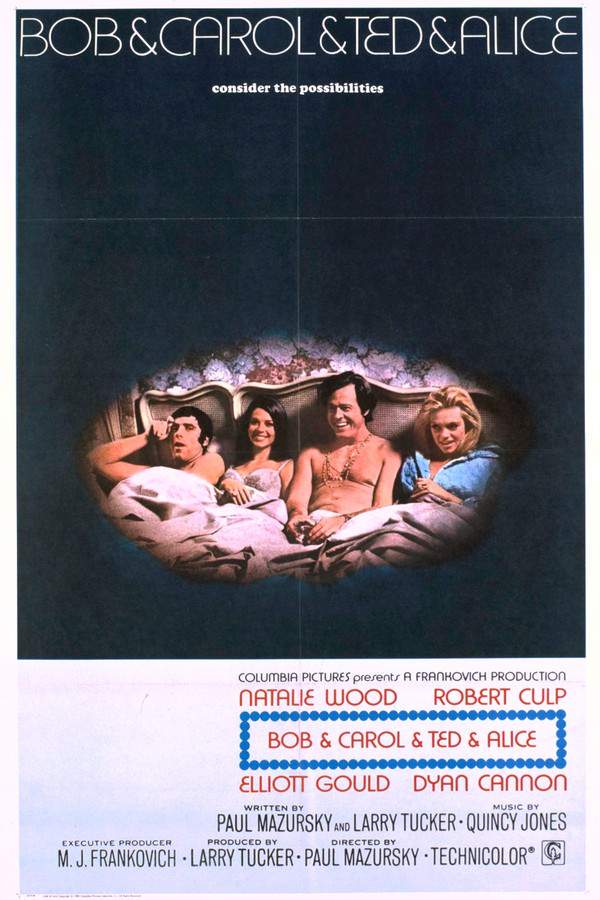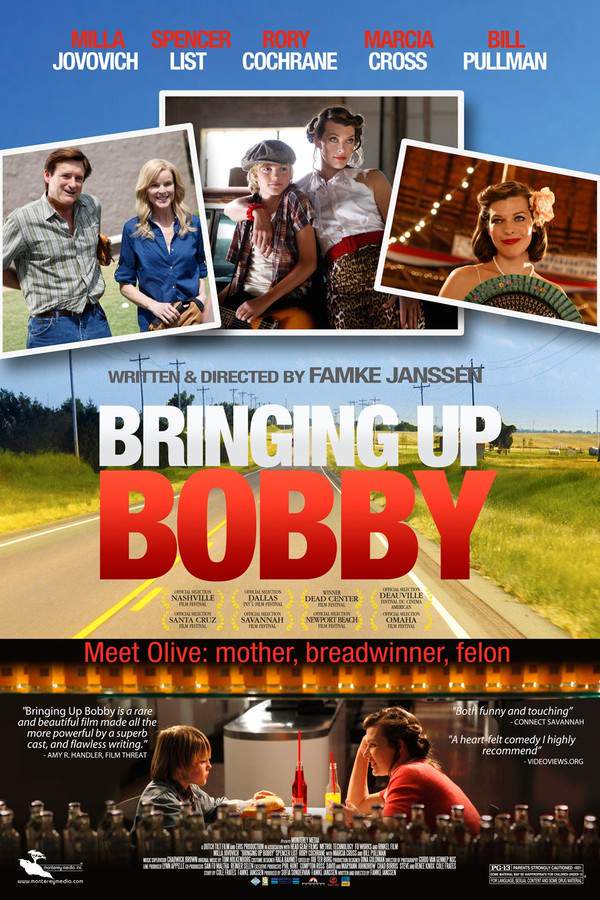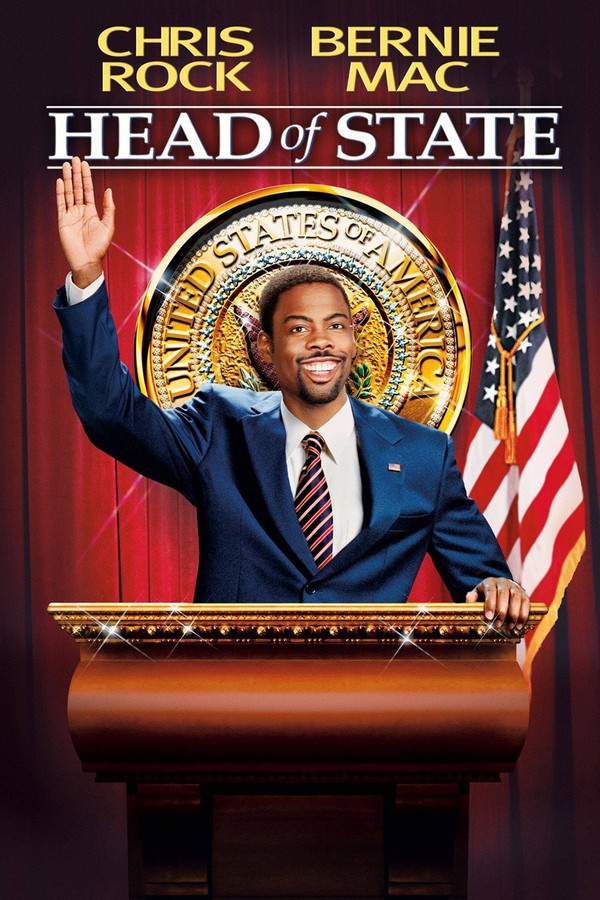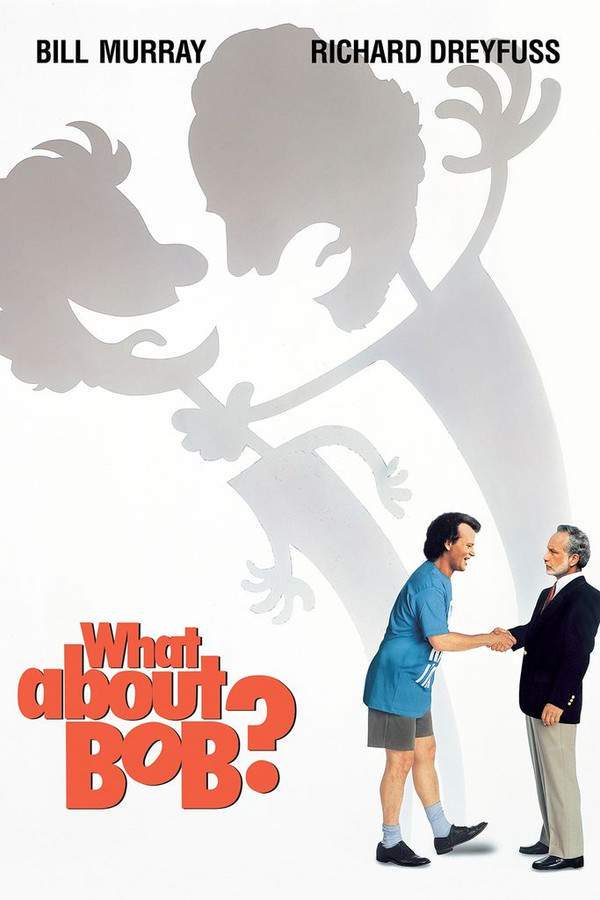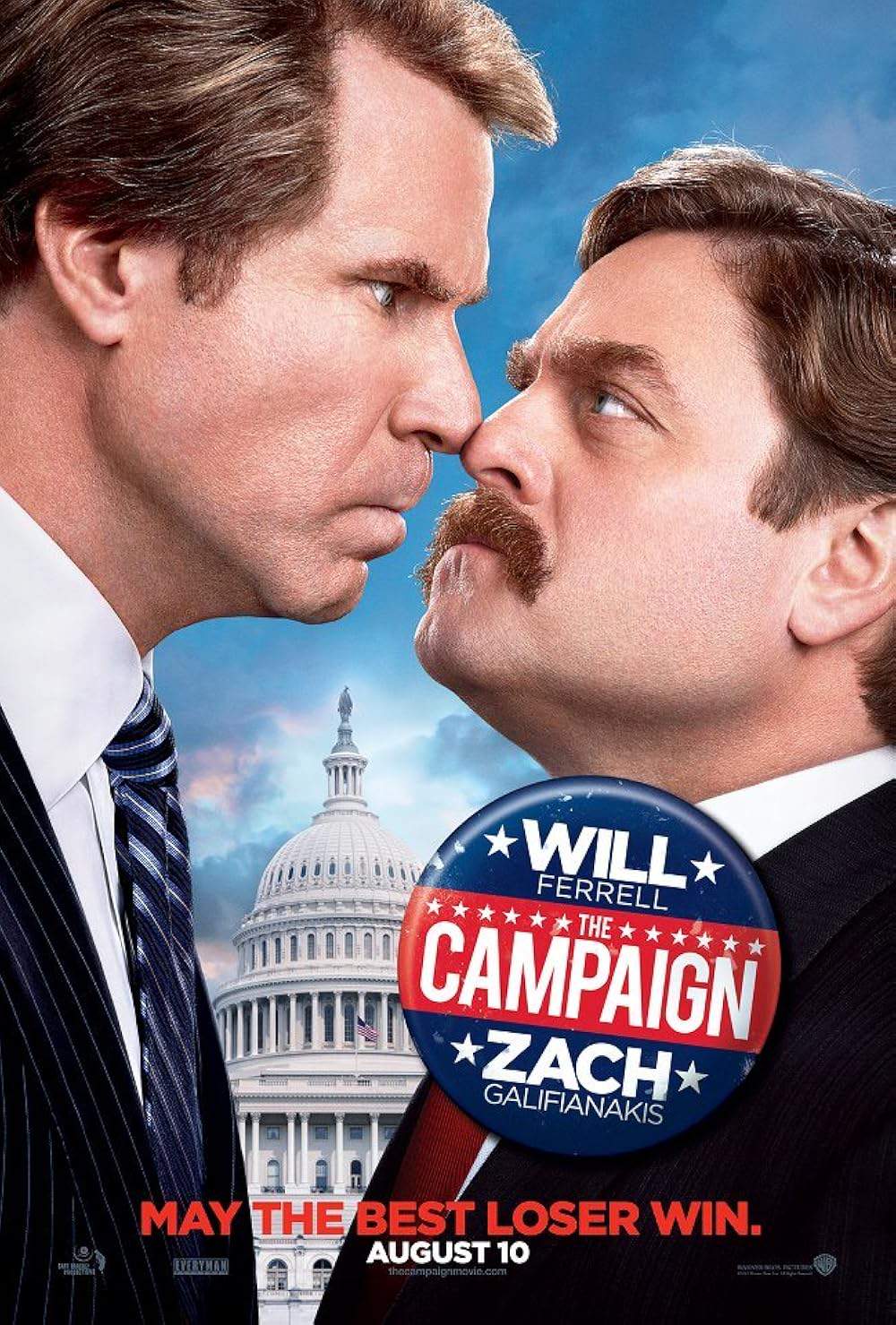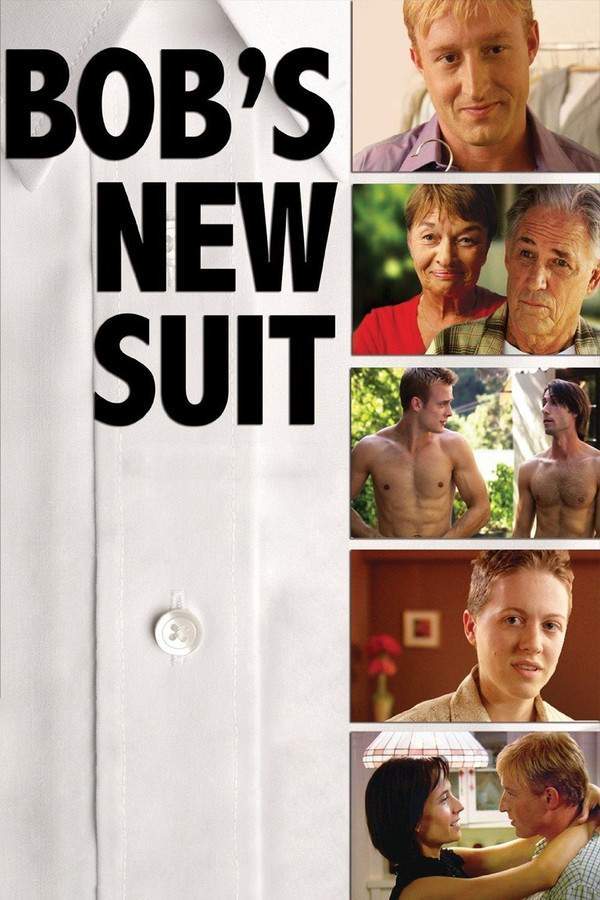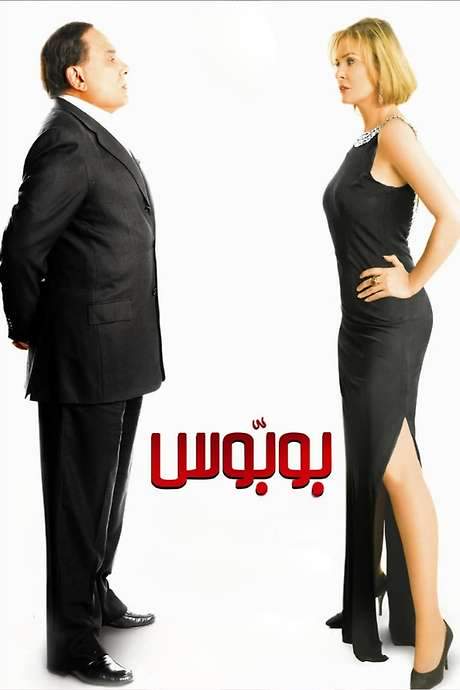Bob Roberts 1992
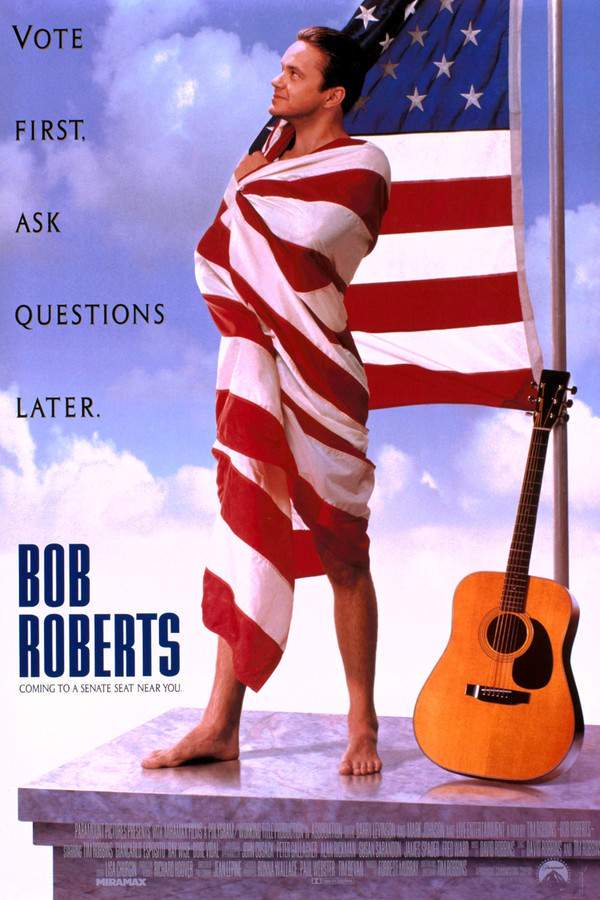
This offbeat comedy-drama follows Bob Roberts, a wealthy and charismatic businessman who decides to run for the US Senate. His campaign is fueled by catchy folk songs that subtly promote conservative viewpoints, gaining him a dedicated following. However, investigative journalist Bugs Raplin begins to scrutinize Roberts’s methods and financial backers. As Raplin gets closer to the truth, a failed assassination attempt throws the campaign into turmoil, raising questions about Roberts's supporters and the nature of political manipulation.
Does Bob Roberts have end credit scenes?
No!
Bob Roberts does not have end credit scenes. You can leave when the credits roll.
Meet the Full Cast and Actors of Bob Roberts
Explore the complete cast of Bob Roberts, including both lead and supporting actors. Learn who plays each character, discover their past roles and achievements, and find out what makes this ensemble cast stand out in the world of film and television.
External Links and Streaming Options
Discover where to watch Bob Roberts online, including streaming platforms, rental options, and official sources. Compare reviews, ratings, and in-depth movie information across sites like IMDb, TMDb, Wikipedia or Rotten Tomatoes.
Ratings and Reviews for Bob Roberts
See how Bob Roberts is rated across major platforms like IMDb, Metacritic, and TMDb. Compare audience scores and critic reviews to understand where Bob Roberts stands among top-rated movies in its genre.

70
Metascore
4.2
User Score


93%
TOMATOMETER

78%
User Score

7.0 /10
IMDb Rating

65
%
User Score
Take the Ultimate Bob Roberts Movie Quiz
Challenge your knowledge of Bob Roberts with this fun and interactive movie quiz. Test yourself on key plot points, iconic characters, hidden details, and memorable moments to see how well you really know the film.
Bob Roberts Quiz: Test your knowledge on the political satire film 'Bob Roberts' from 1992.
Who is the incumbent Democrat politician opposing Bob Roberts?
Brickley Paiste
Lukas Hart III
Terry Manchester
Bugs Raplin
Show hint
Awards & Nominations for Bob Roberts
Discover all the awards and nominations received by Bob Roberts, from Oscars to film festival honors. Learn how Bob Roberts and its cast and crew have been recognized by critics and the industry alike.
50th Golden Globe Awards 1993

Full Plot Summary and Ending Explained for Bob Roberts
Read the complete plot summary of Bob Roberts, including all major events, twists, and the full ending explained in detail. Explore key characters, themes, hidden meanings, and everything you need to understand the story from beginning to end.
In the scorching summer of 1990, Pennsylvania becomes the focal point of a heated senatorial battle between Brickley Paiste, the incumbent Democrat, and Bob Roberts, a conservative Republican who happens to be a folk singer. Through the lens of Terry Manchester, a British documentary filmmaker, viewers get an unsparing look at Roberts’ campaign as he energetically tours the state. The camera captures every detail, revealing his performances—songs and speeches that blend traditional values with a spirit of laissez-faire capitalism. This mix invokes a sense of nostalgia for the 1960s, even while starkly contrasting its foundational ideals.
As the campaign progresses, Manchester’s footage is enriched by candid commentary from figures like Kelly Noble, an anchor on television, and Bugs Raplin—an investigative journalist filled with convictions. Paiste holds firm in his belief that Roberts is a shrewd manipulator, potentially connected to factions like the National Security Council, the CIA, and the military-industrial complex. At the same time, Raplin sees a chance to topple Roberts by exposing his anti-drug charity, Broken Dove, as a veiled operation linked to a CIA drug trafficking scheme, further fueled by allegations against Lukas Hart III.
The narrative thickens as Paiste becomes embroiled in scandal; a young woman is seen leaving his vehicle. Although he claims she is merely a friend of his granddaughter, the whispers of controversy grow louder. The Roberts campaign, too, faces turbulence as Raplin’s claims gain momentum, leading to a subpoena for Hart III, suspected of misdirecting housing loans for illicit drug activities. Through Manchester’s documentary, we witness the harsh realities of American politics—a realm where ideals clash starkly with opportunistic behavior, and the fragile boundaries between truth and deceit are constantly crossed.
As election day approaches, the tension peaks when Roberts gets invited to perform on a famous sketch comedy show. In a surprising twist, he opts to replace his planned song with a piece that serves more as a covert campaign pitch, igniting fierce discussions among the show’s crew and resulting in a dramatic on-air interruption. Amidst the fracas, Roberts faces a shocking incident when an would-be assassin targets him, leaving him purportedly injured. Initial blame falls on Raplin, a nuisance to the campaign, but investigators soon realize his physical condition prevents him from being the shooter. Raplin asserts that no bullet ever struck Roberts, merely landing safely in the ground, leading to widespread skepticism among onlookers.
Despite the surrounding chaos, the failed assassination forges an unexpected bond of support for Roberts, propelling him to a substantial victory with 52% of the votes cast. His supporters dance in joy, celebrating what they perceive as a hard-fought win, unaware that his injuries may be greatly exaggerated. A fleeting glimpse of Roberts at his victory celebration shows him moving much more easily than one might expect of an injured candidate.
In a shocking moment, a young boy dashes to Manchester, exclaiming, “He’s dead! They got him!” The startling declaration sends ripples through the crowd. As Manchester delves deeper, he discovers that Raplin met his end at the hands of a right-wing extremist. This news, while tragic, sends waves of jubilation through Roberts’ ranks.
The film closes with a somber radio announcement revealing Raplin’s demise and a poignant shot of Manchester standing at the Jefferson Memorial, reflecting upon the inscription: “I have sworn upon the altar of God eternal hostility against every form of tyranny over the mind of man.” The haunting end emphasizes the dark currents that have shaped the unfolding drama, leaving viewers to ponder the morality and implications of the narrative.
Uncover the Details: Timeline, Characters, Themes, and Beyond!

Coming soon on iOS and Android
The Plot Explained Mobile App
From blockbusters to hidden gems — dive into movie stories anytime, anywhere. Save your favorites, discover plots faster, and never miss a twist again.
Sign up to be the first to know when we launch. Your email stays private — always.
Watch Trailers, Clips & Behind-the-Scenes for Bob Roberts
Watch official trailers, exclusive clips, cast interviews, and behind-the-scenes footage from Bob Roberts. Dive deeper into the making of the film, its standout moments, and key production insights.
Cars Featured in Bob Roberts
Explore all cars featured in Bob Roberts, including their makes, models, scenes they appear in, and their significance to the plot. A must-read for car enthusiasts and movie buffs alike.
Bob Roberts Themes and Keywords
Discover the central themes, ideas, and keywords that define the movie’s story, tone, and message. Analyze the film’s deeper meanings, genre influences, and recurring concepts.
Bob Roberts Other Names and Titles
Explore the various alternative titles, translations, and other names used for Bob Roberts across different regions and languages. Understand how the film is marketed and recognized worldwide.
Similar Movies To Bob Roberts You Should Know About
Browse a curated list of movies similar in genre, tone, characters, or story structure. Discover new titles like the one you're watching, perfect for fans of related plots, vibes, or cinematic styles.
Quick Links: Summary, Cast, Ratings, More

What's After the Movie?
Not sure whether to stay after the credits? Find out!
Explore Our Movie Platform
New Movie Releases (2026)
Famous Movie Actors
Top Film Production Studios
Movie Plot Summaries & Endings
Major Movie Awards & Winners
Best Concert Films & Music Documentaries
Movie Collections and Curated Lists
© 2026 What's After the Movie. All rights reserved.







